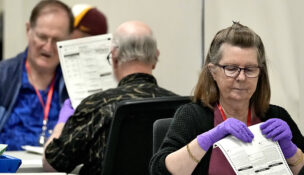Tyler Pace: Businessman turns true freshman
Ben Giles//February 11, 2019//[read_meter]
Tyler Pace When Tyler Pace jumped into the race for the state Senate, his victory was all but assured thanks to the timely retirement of former...
No tags for this post.
















